When times are tough, it's easy to get down in the dumps, give in to hopelessness, and throw in the towel. But if you're feeling bogged down by personal and/or professional struggles, take heart: You can get through it—as the people in the following books can attest.
Below, you'll find a selection of survival stories that show that, even in the most difficult circumstances, the human spirit can prevail. Each one recounts the courageous acts of everyday citizens, all of whom pushed through hardship to come out on the other side. From an account of legendary World War II underdogs to a journalist's memoir on her imprisonment in Somalia, their tales of strength and resilience not only captivate—they prove that you, too, have what it takes to keep on keeping on.
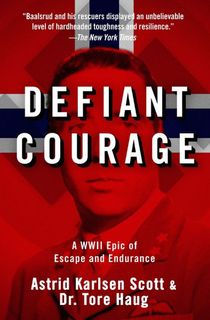
Defiant Courage
Of the four Norwegian commandos who launched a sabotage mission against the Nazis, Jan Baalsrud was the only one left standing. Now a prime target for the Gestapo forces, Baalsrud took on his most important assignment yet: protecting his own life. His journey to safety wasn't without significant roadblocks—from icy waters to snowstorms to a full-blown avalanche—though the compassion of everyday civilians helped see him to freedom. Defiant Courage brings Baalsrud's adrenaline-pumped story to life, shining a spotlight on a little-known hero of World War II.
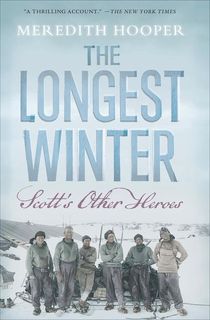
The Longest Winter
Between 1901 and 1904, Robert Falcon Scott led the revolutionary Discovery expedition, which resulted in the discovery of the Antarctic Plateau. But while this mission was a success, Scott’s second would unfold much differently. After failing to reach the South Pole before his top competitor, Roald Amundsen, Scott and his five companions perished in the cold. But there were six others—separated from Scott’s core group and tasked with exploring a glacier, not the Pole—that remained in the Antarctic wilderness for an entire year. When they realized they would not be picked up by Scott's team as scheduled, they desperately tried to find a way back to safety. As Meredith Hooper writes in her book about their experience, the men's trust and reliance on each other helped them overcome the most dire of circumstances.

The Miracle of Dunkirk
In 1940, the fate of Western Europe rested in the hands of 338,000 Allied soldiers, who stood cornered in Dunkirk, France. With the German's swift advance, it seemed unlikely that the men would be able to maintain a sufficient defense—until a miracle happened. On May 26 of that year, new prime minister Winston Churchill ordered an evacuation mission called “Operation Dynamo,” which inspired thousands of British civilians to board their own boats and lend a helping hand. Thanks to their efforts, the lives of 300,000 men were saved—a far greater number than Churchill ever expected—and the cities of London and Paris remained out of Axis control. Walter Lord’s The Miracle of Dunkirk is the definitive account of this incredible story of heroism and survival, and it also served as the basis for the 2017 Christopher Nolan film.
Related: Miracle at Dunkirk: 8 Things the Film Didn’t Tell You
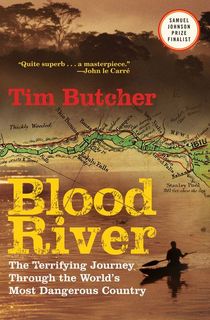
Blood River
In 1987, Henry Morton Stanley embarked on a daring expedition to map the Congo River. Over one century later, Daily Telegraph correspondent Tim Butcher decided to follow the same route, hoping to recreate the 3,000-mile journey and experience its many challenges for himself. Naturally, his friends and family tried to convince him otherwise—but Butcher forged on anyways, ready to walk in the footsteps of the legendary Victorian explorer. He describes his harrowing trek through “the broken heart of Africa” in Blood River, all the while examining the country’s turbulent past and present.
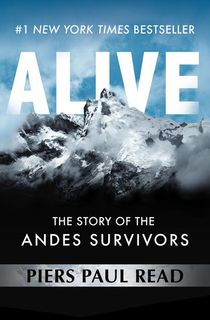
Alive
On October 13, 1972, 45 passengers boarded the Fairchild F-227 to make a routine flight from Argentina to Chile. But along the way, the plane crashed in the Andes—leaving 29 of those passengers dead. Stranded in the mountains, the remaining survivors were tested like never before, as starvation, freezing temperatures, and untreated injuries threatened to pick them off one by one. But after ten weeks of hardship—and after eating the dead members of their party—two men managed to find a remote Chilean valley, get help, and orchestrate a rescue mission. Here, Piers Paul Read relays the details of their story, begging the question: To what lengths would you go to save your own life?
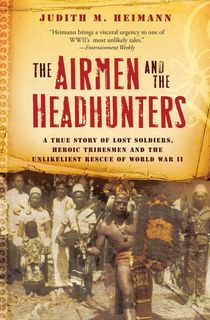
The Airmen and the Headhunters
The Airmen and the Headhunters offers a gripping account of two downed planes—one for the U.S. Army Air Corps and one for the U.S. Navy—and their unlikely saviors. Stranded on the coast of Borneo in Southeast Asia, the American flyers managed to avoid Japanese occupiers due to the kindness of Dayak tribesmen. Notorious for their practice of “headhunting” (an ancient ritual involving a severed human head), the surprisingly empathetic Dayak proved far less “savage” than the Japanese, who were guiltlessly plundering the area. Thus, Heimann's book is at once a chronicle of this unusual World War II survival story, an anthropological study of the region’s native tribes, and a look at what it truly means to be human.

Survival in the Shadows
Facing imminent deportation to Auschwitz, Arthur Arendt did what any Jew in Nazi-occupied Germany would do: He faked his own death and went into hiding with his wife and two adult children, Erich and Ruth. The family was eventually joined by Erich’s girlfriend, Ellen, and her mother—plus one of Erich’s friends, Bruno Gumpel. A respected doctor who treated both Jews and Gentiles in Berlin, Arthur had a number of people who were more than willing to help him and his loved ones in their hour of need. And though Arthur, his wife, and Ellen’s mother died while in hiding, the kindness of these loyal patients—and even of random strangers—enabled the remaining four to live right under their enemies’ noses. Their story, recounted by Barbara Lovenheim in Survival in the Shadows, even has a happy ending: Two months after their rescue in April 1945, Erich married Ellen and Ruth married Bruno.
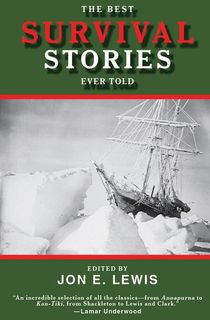
The Best Survival Stories Ever Told
Take a crash course in legendary survival stories with Jon E. Lewis’ fascinating collection. The 30 featured tales are drawn from the writings of some of the world’s most prominent explorers—from Lewis and Clark to Charles A. Lindbergh—who undertook some of the world’s most dangerous adventures.

A House in the Sky
Since the days of her troubled childhood, Amanda Lindhout found solace in the pages of National Geographic and her dreams of seeing the world. Her innate curiosity and adventurous spirit gave rise to a career in freelance journalism—and to the most transformative experience of her life. In 2008, Lindhout discovered why war-stricken Somalia was considered “one of the most dangerous places on earth”: While on assignment for a Paris-based TV network, she and Australian photographer Nigel Brennan were kidnapped by a group of masked men. For the 460 days between her abduction and her release, Amanda lived as a chained prisoner, suffering relentless beatings, torture sessions, and sexual assaults. A House in the Sky is her memoir in which she reflects on this terrifying 15-month period and how hope, faith, compassion, and forgiveness kept her alive.

102 Minutes
On September 11, 2001, America watched in horror as news stations broadcasted footage of the Twin Towers’ collapse. But what us onlookers saw—the smoke, the fire, the debris—was nothing compared to what was happening at ground zero. This National Book Award finalist gives voice to the stories of those inside the World Trade Center on that day, taking readers inside the pivotal 102 minutes following the first plane crash. As reporters Jim Dwyer and Kevin Flynn discovered during their research, sometimes the greatest tragedies beget the greatest acts of heroism.
This post is sponsored by Open Road Media. Thank you for supporting our partners, who make it possible for The Archive to continue publishing the history stories you love.


